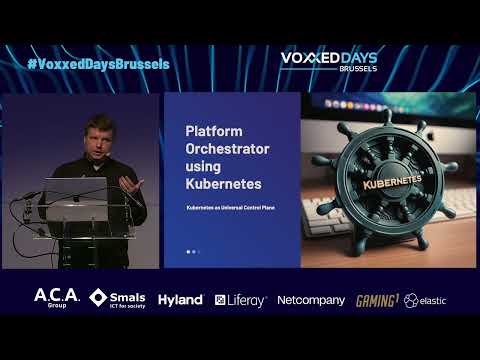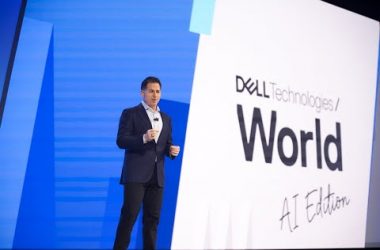In this Devoxx conference held in Belgium, Tom de Wolf, an architect and innovation lead at ACA Group, delves into the intricacies of platform engineering, focusing on how Kubernetes operators and Custom Resource Definitions (CRDs) can reduce the cognitive load for developers. This talk highlights the importance of raising the level of abstraction to simplify the underlying infrastructure and technology complexities, allowing developers to work more autonomously and concentrate on delivering value.
Platform engineering and the development of Internal Developer Platforms (IDPs) are increasingly prioritized by organizations. This approach empowers developers with self-service tools that streamline their workflows and eliminate unnecessary technical burdens. The ultimate aim is to foster a ‘shift-left’ movement, where the cognitive load for developers is minimized, enabling faster, more efficient delivery of high-quality applications.
Tom de Wolf explores how Kubernetes can serve as a powerful tool for engineering such platforms. By using microservices and data products as examples, he demonstrates how to design and implement a Platform Orchestrator or Control Plane. This involves leveraging Kubernetes Operators and CRDs to create fit-for-purpose abstractions, facilitating a seamless and efficient developer experience.
The talk emphasizes several key benefits of the specialized platform, including expanded flexibility, strengthened operational efficiencies, and increased access to cloud services and AI capabilities. These enhancements are crucial for deepening the value proposition for market users globally, allowing them to experiment, test, and deploy new strategies rapidly without impacting their production environments.
Tom de Wolf also discusses the role of the Platform Orchestrator in managing these abstractions, detailing how Kubernetes can automate and orchestrate complex workflows. By integrating with existing Kubernetes tools and APIs, organizations can build robust, resilient platforms that scale efficiently and maintain high performance.
Throughout the session, De Wolf provides practical examples and live demos, showcasing how to implement these concepts in real-world scenarios. He covers the design and coding of microservice abstractions, the use of the Java Operator SDK, and the management of dependent resources within Kubernetes.
This talk also touches on the broader implications of platform engineering, such as its impact on team structures and the need for a product mindset when developing internal platforms. By focusing on providing a golden path and a paved road to production, platform teams can significantly enhance the developer experience and drive innovation within their organizations.
Join this conference to gain valuable insights into leveraging Kubernetes for cloud-native platform engineering, enhancing operational efficiency, and accelerating digital transformation. Whether you are a seasoned developer or an organizational leader, this episode offers a wealth of knowledge on building and maintaining high-performance, scalable platforms. Tune in to discover how you can implement these cutting-edge strategies to optimize your development processes and deliver greater value to your users.









